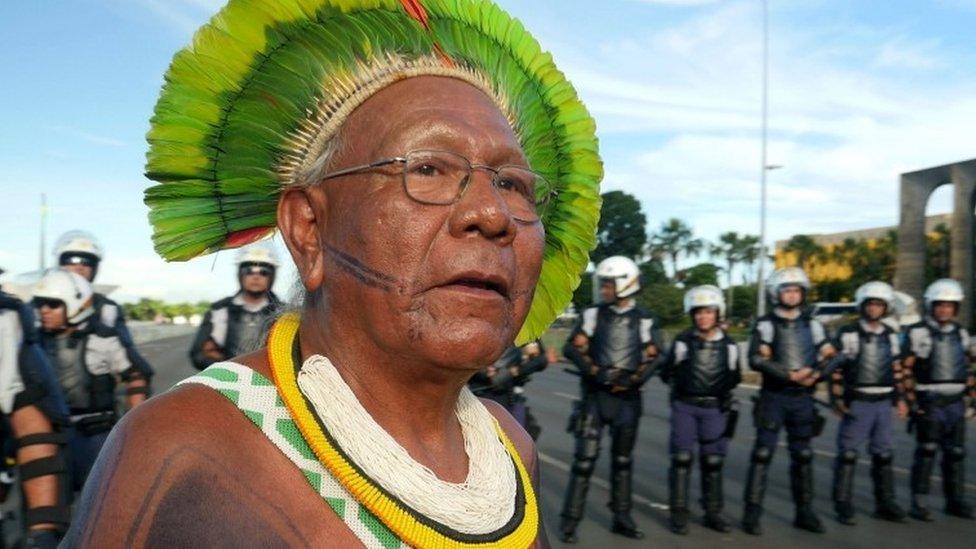Brazilian Amazon: Juma descendants of 'last warrior' vow to carry on legacy
- Published
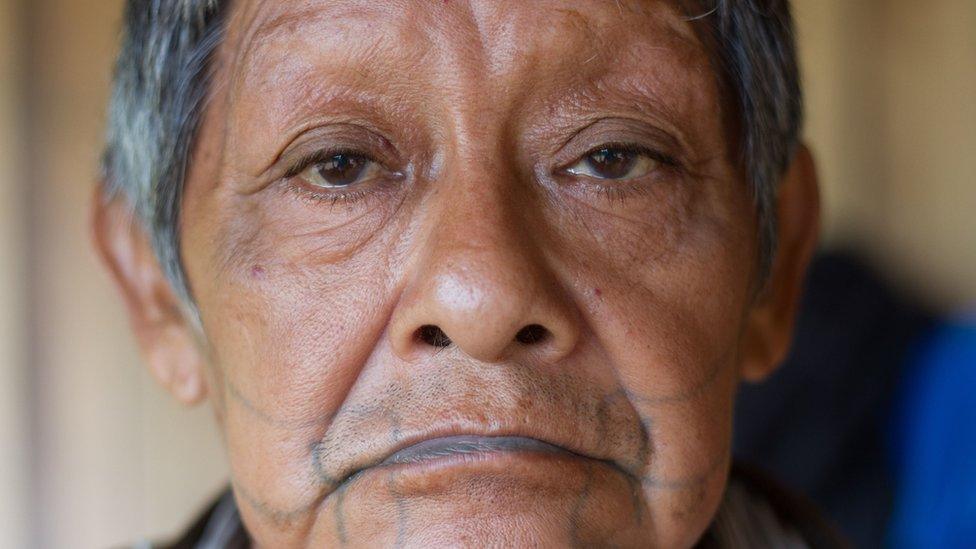
Aruká, last Juma warrior, died after falling ill with Covid-19
The last male member of the Juma indigenous group in the Brazilian Amazon has died after falling ill with Covid-19.
Aruká's death last week is the latest blow to the group whose numbers were reduced from around 15,000 in the early 20th Century to only six people in the 1990s.
Aruká was the last surviving male of the group, but as BBC News Brazil's Juliana Gragnani reports, his grandchildren have taken an unusual step to ensure his legacy is preserved.
Aruká's exact age is not known but he was estimated to be between 86 and 90 years old. During his life, Aruká witnessed the decline of the thousands-strong Juma community which once fished, hunted and planted lands in the southern region of Amazonas state.
Following a series of massacres carried out by rubber tappers and the spread of deadly diseases, the Juma's numbers dwindled until Aruká's family was the only one left.
"He always spoke with sadness about how in the old days there were many Juma, and how now he was the last man left," Gabriel Uchida, a photographer who has documented the life of the Juma, recalls.
Break with tradition
Aruká had three daughters, but with the Juma community already decimated by the time they grew up, all three married men from the Uru-eu-wau-wau indigenous group.
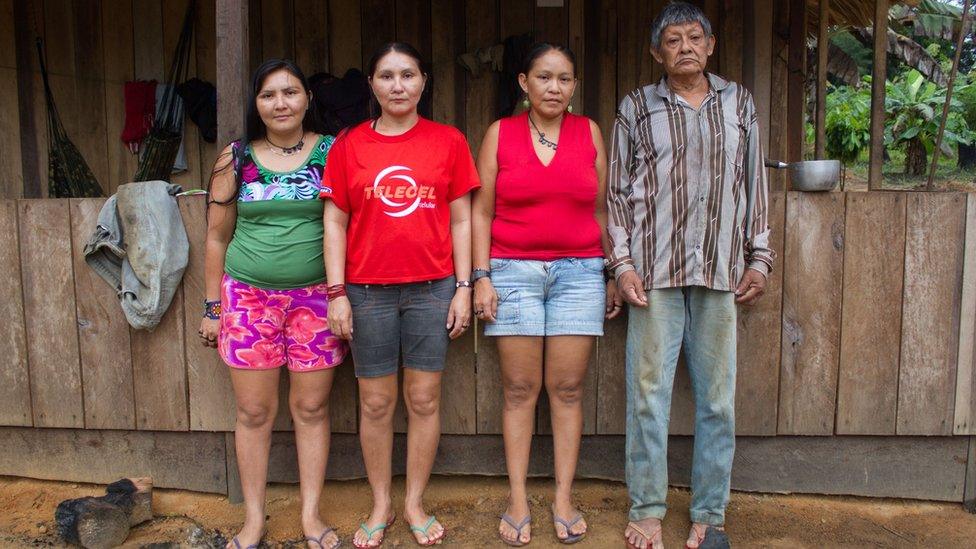
Aruká is survived by his three daughters and their children
According to the patrilineal system of these communities, this means that Aruká's grandchildren and great-grandchildren are considered part of their fathers' group and not that of their mothers.
But in a break with tradition, some of Aruká's grandchildren have decided to identify themselves both as Uru-eu-wau-wau and as Juma.
"We are going to carry on our people's tradition", explains 20-year-old Bitaté Uru-eu-wau-wau.
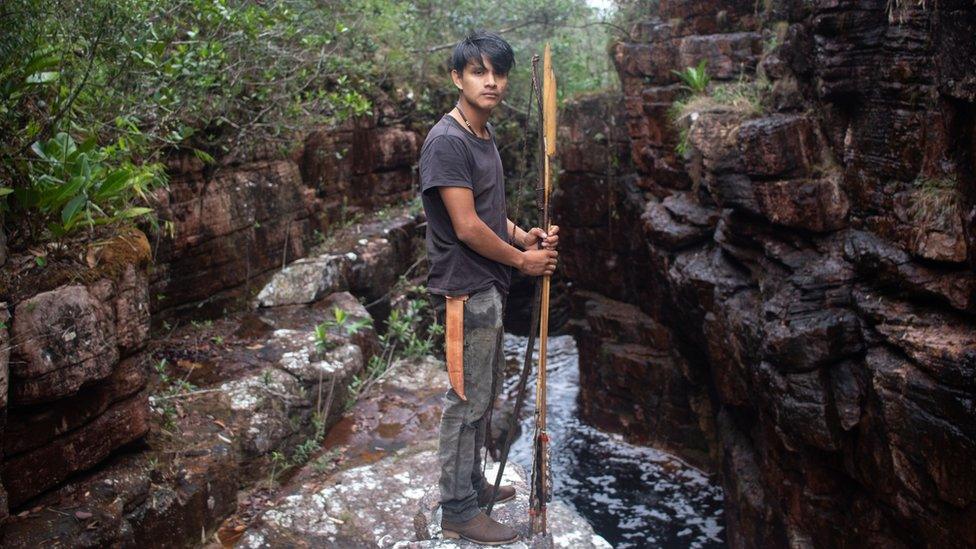
Bitaté Uru-eu-wau-wau says he will carry on his grandfather's legacy
"He is with us, lives with us, and represents our people through the grandchildren and future great-grandchildren who will come," Bitaté says of his late grandfather.
Bitaté's 18-year-old cousin Kuaimbú echoes the sentiment. "We don't want our people's fight to be forgotten. We are proud of our grandfather and our mothers' fight, and we want to continue it."
Kuaimbú has incorporated his grandfather's surname into his own and calls himself Kuaimbú Juma Uru-eu-wau-wau, a change he plans to make official soon so it is also reflected in his ID.
"I'm a grandson of a Juma, a son of a Juma. I have the right to have Juma in my name," he explains.
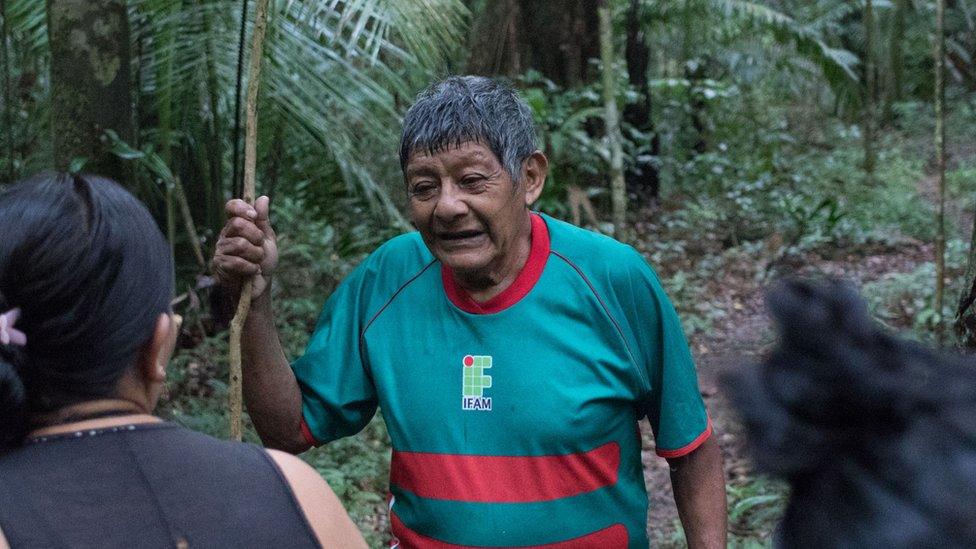
Aruká taught the history of the Juma people to his daughters and grandchildren
Indigenous rights activist Ivaneide Bandeira says including "Juma" into the surname is an unprecedented move which she has not seen in any other patrilineal indigenous groups.
"It's a message on the part of the grandchildren that they are here to stay and that they are resisting," Ms Bandeira from the Association of Ethno-Environmental Protection Kanindé explains.
'Story of death'
Ms Bandeira says that the story of the Juma, like that of many indigenous groups of the Amazon, has been "a story of death".
From the 1940s onwards, the Juma were targeted by people who were after the riches of their lands, according to Prof Luciana França from the Federal University of Western Pará.
The last documented massacre of the Juma people was in 1964, when rubber tappers from a nearby community killed dozens of Juma men, the anthropologist says.
For Ms Bandeira, it is shocking that the last male survivor of the massacres and diseases which killed thousands of his people should have died of Covid.
She blames the Brazilian state for its "complete incompetence and inability to provide protective measures" to prevent Covid from reaching Aruká's village. She says that anyone entering the village should have had a test and been put into quarantine to prevent the virus from spreading.
Aruká's grandson Bitaté echoes her criticism. "We're far away from the city and there is little travel. The disease should never have reached us. The government didn't take care. It's a lack of responsibility on their part" he says.
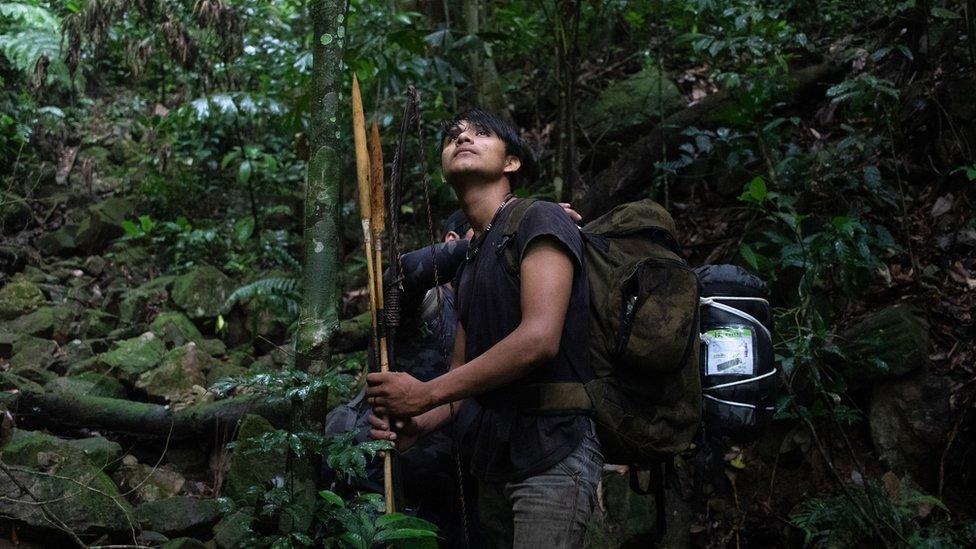
Bitaté Uru-eu-wau-wau says the government should have done more to prevent the spread of Covid
Aruká's death is not an isolated case. According to the Special Secretary of Indigenous Health (Sesai), out of a total of 896,900 indigenous people in Brazil, 572 have died from Covid-19.
An independent indigenous organisation, Apib, maintains the indigenous Covid death toll is much higher, with 970 indigenous lives lost to the pandemic. Many of them are elders, who have been keeping precious oral histories and knowledge alive.
Legacy for the future
Bitaté says that his grandfather passed on some of his knowledge before his death.
Two years ago, Aruká fulfilled his long-held dream of building an ancestral longhouse. "He taught me about its architecture, how to build it and now I know how to build a Juma longhouse," Bitaté says.
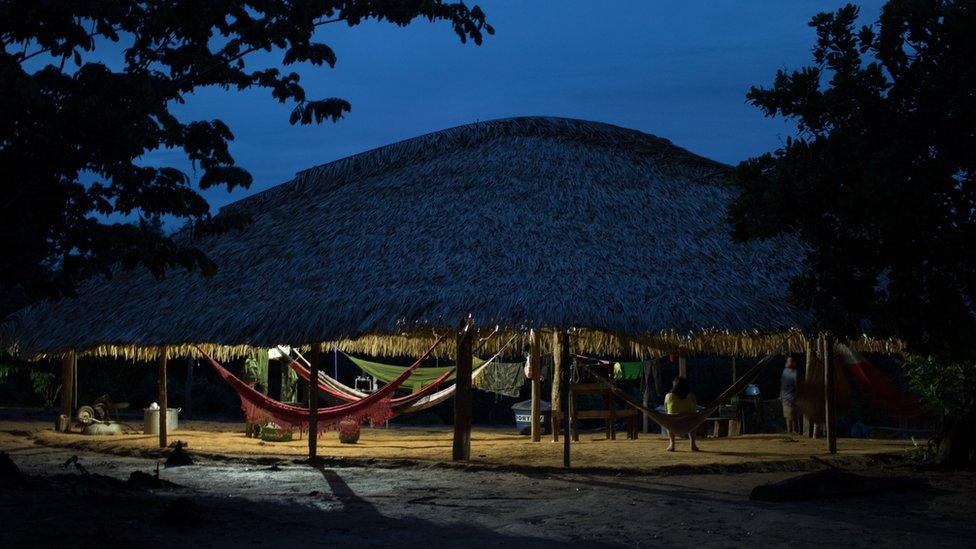
Aruká dreamt of building a traditional Juma longhouse
Aruká also taught his grandchildren how to fish and hunt as well as the history of their people and their culture.
"He was a warrior. He told stories of fights with the rubber tappers, of how, when they were attacked, the Juma people fought back," photographer Gabriel Uchida recalls.
Ms Bandeira also describes Aruká as "a symbol of resistance" whose legacy will be kept alive by his grandchildren and great-grandchildren.
"Aruká's daughters and grandchildren will stay and resist," she says.

You may want to watch:
In February the BBC looked at how the whole town of Serrana would be vaccinated
Related topics
- Published11 September 2020
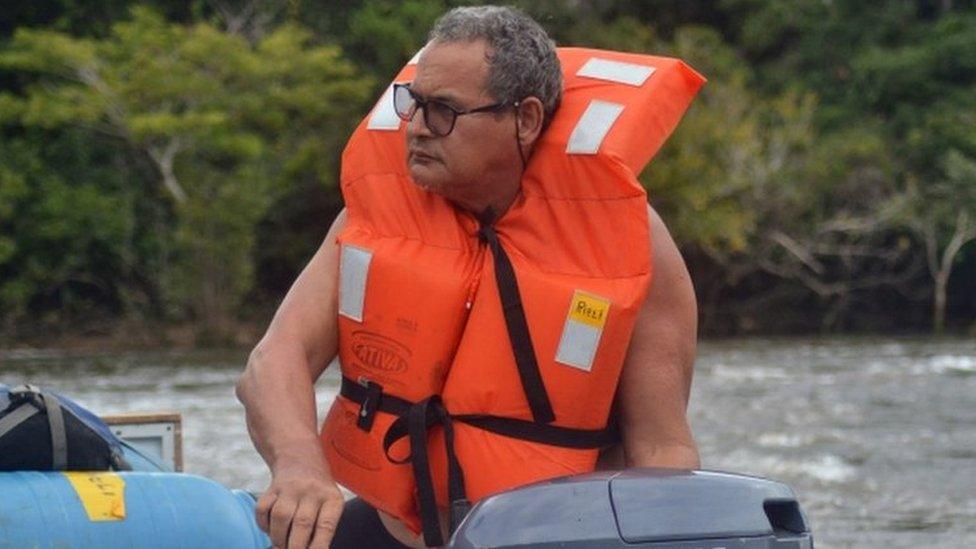
- Published18 June 2020
